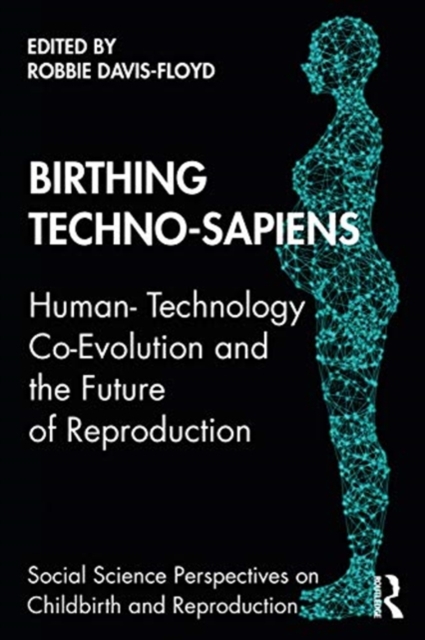
Birthing Techno-Sapiens : Human-Technology Co-Evolution and the Future of Reproduction Paperback / softback
Edited by Robbie (University of Texas, Austin, United States of America) Davis-Floyd
Part of the Social Science Perspectives on Childbirth and Reproduction series
Paperback / softback
Description
This ground-breaking book challenges us to re-think ourselves as techno-sapiens—a new species we are creating as we continually co-evolve ourselves with our technologies.
While some of its chapters are imaginary, they are all empirically grounded in ethnography and richly theorized from diverse disciplines. The authors go far beyond a techno-optimism vs. techno-pessimism stance, stretching our thinking about birthing techno-sapiens to consider not only how our cyborgian reproductive lives are constrained and/or enabled by technology but are also about emotions and spirit.
The world of reproductive health care and particularly that of genetic engineering is developing exponentially, and current challenges are vastly different from those of a decade ago.
The book is provocative, intended to generate debate, ideas, and future research and to influence ethical policy and practice in human techno-reproduction.
It will be of interest across the social sciences and humanities, for reproductive scholars, bioethicists, techno-scientists, and those involved in the development and delivery of maternity services.
Information
-
Out of stock
- Format:Paperback / softback
- Pages:302 pages, 2 Line drawings, black and white; 6 Halftones, color; 12 Halftones, black and white; 6 Il
- Publisher:Taylor & Francis Ltd
- Publication Date:31/03/2021
- Category:
- ISBN:9780367535438
Information
-
Out of stock
- Format:Paperback / softback
- Pages:302 pages, 2 Line drawings, black and white; 6 Halftones, color; 12 Halftones, black and white; 6 Il
- Publisher:Taylor & Francis Ltd
- Publication Date:31/03/2021
- Category:
- ISBN:9780367535438










